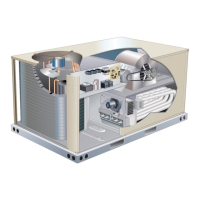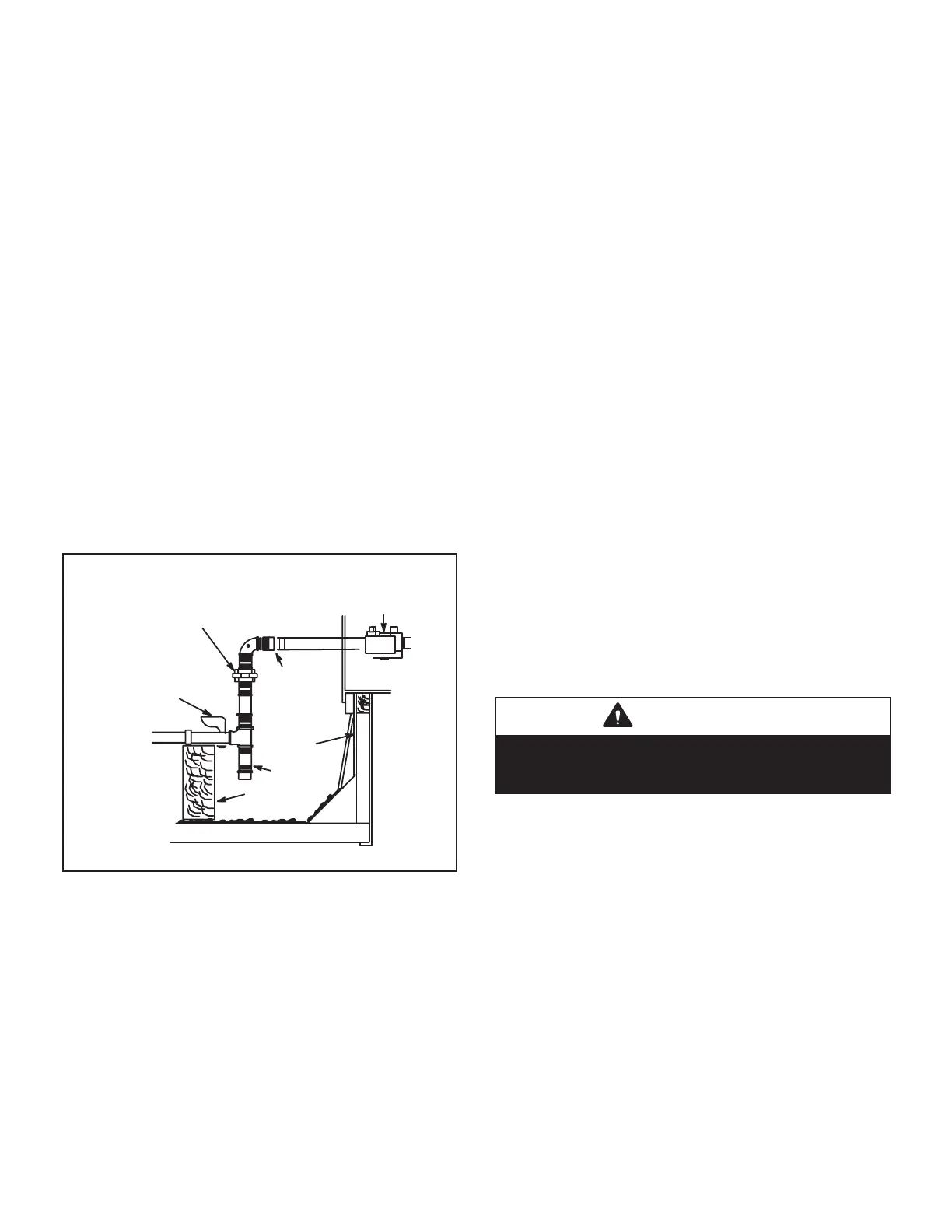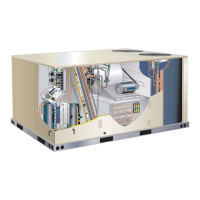V- SYSTEM SERVICE CHECKS
A-Heating System Service Checks
-
cation.
-
thorities having jurisdiction for local code requirements.
-
tion.
1-Gas Piping
the unit. Supply gas pipe must not be smaller than the
details.
2-Testing Gas Piping
NOTE-In case emergency shutdown is required, turn o
the main manual shut-o valve and disconnect the main
power to the unit. These controls should be properly la-
beled by the installer.
disconnected and isolated. Gas valves can be damaged
if subjected to more than 0.5 psig [14”W.C. (3481 Pa)].
UNIT
GROUND
JOINT UNION
MANUAL MAIN
SHUT-OFF VALVE
(REFER TO LOCAL CODES)
GAS PIPING
SUPPORT
DRIP LEG
ROOF
MOUNTING
FRAME
GAS PIPING COMPONENTS
REFER TO INSTALLATION INSTRUCTIONS
VALVE
CAP HERE
TO ISOLATE
VALVE WHEN
PRESSURE
TESTING
LINE
FIGURE 16
preferred means. Common kitchen detergents can cause
harmful corrosion on various metals used in gas piping.
-
source of ignition to check for gas leaks.
3-Testing Gas Supply Pressure
the inlet pressure tap located on unit gas valve GV1. Test
-
with the one closest to the supply gas main and progress-
ing to the one furthest from the main. Multiple units should
also be tested with and without the other units operating.
Supply pressure must fall within the range listed in the
previous paragraph.
4-Check and Adjust Manifold Pressure
manifold pressure. Move test gauge to the outlet pressure
location of pressure tap on the gas valve.
The manifold pressure is factory set and should not re-
quire adjustment. See table 7. If manifold pressure is in-
correct and no other source of improper manifold pressure
-
ment screw.
All gas valves are factory regulated. The gas valve should
CAUTION
pressure to the manometer.
Manifold Adjustment Procedure
1 - Connect test gauge to the outlet pressure tap on
steady state.
2 -
Natural gas should burn basically blue with some
some clear yellow streaks.
3 -
record the manifold pressure and compare to the
values given in table 7.

